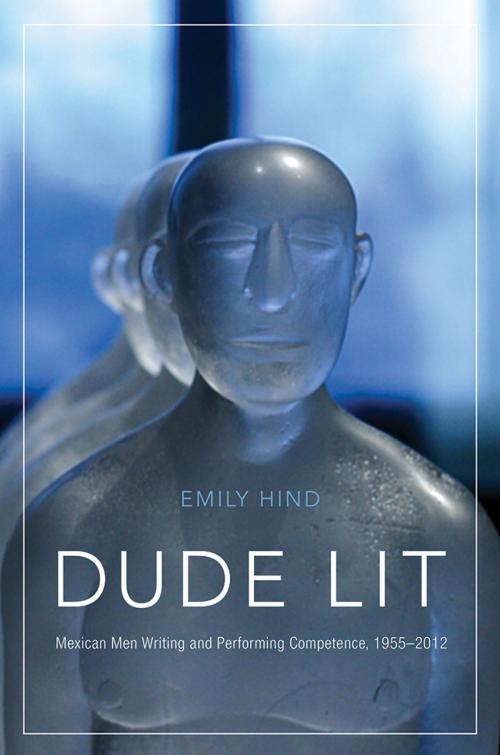Dude Lit
Mexican Men Writing and Performing Competence, 1955–2012
Fiction & Literature, Literary Theory & Criticism, Central & South American, Nonfiction, Social & Cultural Studies, Social Science, Gender Studies| Author: | Emily Hind | ISBN: | 9780816539895 |
| Publisher: | University of Arizona Press | Publication: | May 7, 2019 |
| Imprint: | University of Arizona Press | Language: | English |
| Author: | Emily Hind |
| ISBN: | 9780816539895 |
| Publisher: | University of Arizona Press |
| Publication: | May 7, 2019 |
| Imprint: | University of Arizona Press |
| Language: | English |
How did men become the stars of the Mexican intellectual scene? Dude Lit examines the tricks of the trade and reveals that sometimes literary genius rests on privileges that men extend one another and that women permit.
The makings of the “best” writers have to do with superficial aspects, like conformist wardrobes and unsmiling expressions, and more complex techniques, such as friendship networks, prizewinners who become judges, dropouts who become teachers, and the key tactic of being allowed to shift roles from rule maker (the civilizado) to rule breaker (the bárbaro). Certain writing habits also predict success, with the “high and hard” category reserved for men’s writing and even film directing. In both film and literature, critically respected artwork by men tends to rely on obscenity interpreted as originality, negative topics viewed as serious, and coolly inarticulate narratives about bullying understood as maximum literary achievement.
To build the case regarding “rebellion as conformity,” Dude Lit contemplates a wide set of examples while always returning to three figures, each born some two decades apart from the immediate predecessor: Juan Rulfo (with Pedro Páramo), José Emilio Pacheco (with Las batallas en el desierto), and Guillermo Fadanelli (with Mis mujeres muertas, as well as the range of his publications). Why do we believe Mexican men are competent performers of the role of intellectual? Dude Lit answers this question through a creative intersection of sources. Drawing on interviews, archival materials, and critical readings, this provocative book changes the conversation on literature and gendered performance.
How did men become the stars of the Mexican intellectual scene? Dude Lit examines the tricks of the trade and reveals that sometimes literary genius rests on privileges that men extend one another and that women permit.
The makings of the “best” writers have to do with superficial aspects, like conformist wardrobes and unsmiling expressions, and more complex techniques, such as friendship networks, prizewinners who become judges, dropouts who become teachers, and the key tactic of being allowed to shift roles from rule maker (the civilizado) to rule breaker (the bárbaro). Certain writing habits also predict success, with the “high and hard” category reserved for men’s writing and even film directing. In both film and literature, critically respected artwork by men tends to rely on obscenity interpreted as originality, negative topics viewed as serious, and coolly inarticulate narratives about bullying understood as maximum literary achievement.
To build the case regarding “rebellion as conformity,” Dude Lit contemplates a wide set of examples while always returning to three figures, each born some two decades apart from the immediate predecessor: Juan Rulfo (with Pedro Páramo), José Emilio Pacheco (with Las batallas en el desierto), and Guillermo Fadanelli (with Mis mujeres muertas, as well as the range of his publications). Why do we believe Mexican men are competent performers of the role of intellectual? Dude Lit answers this question through a creative intersection of sources. Drawing on interviews, archival materials, and critical readings, this provocative book changes the conversation on literature and gendered performance.















